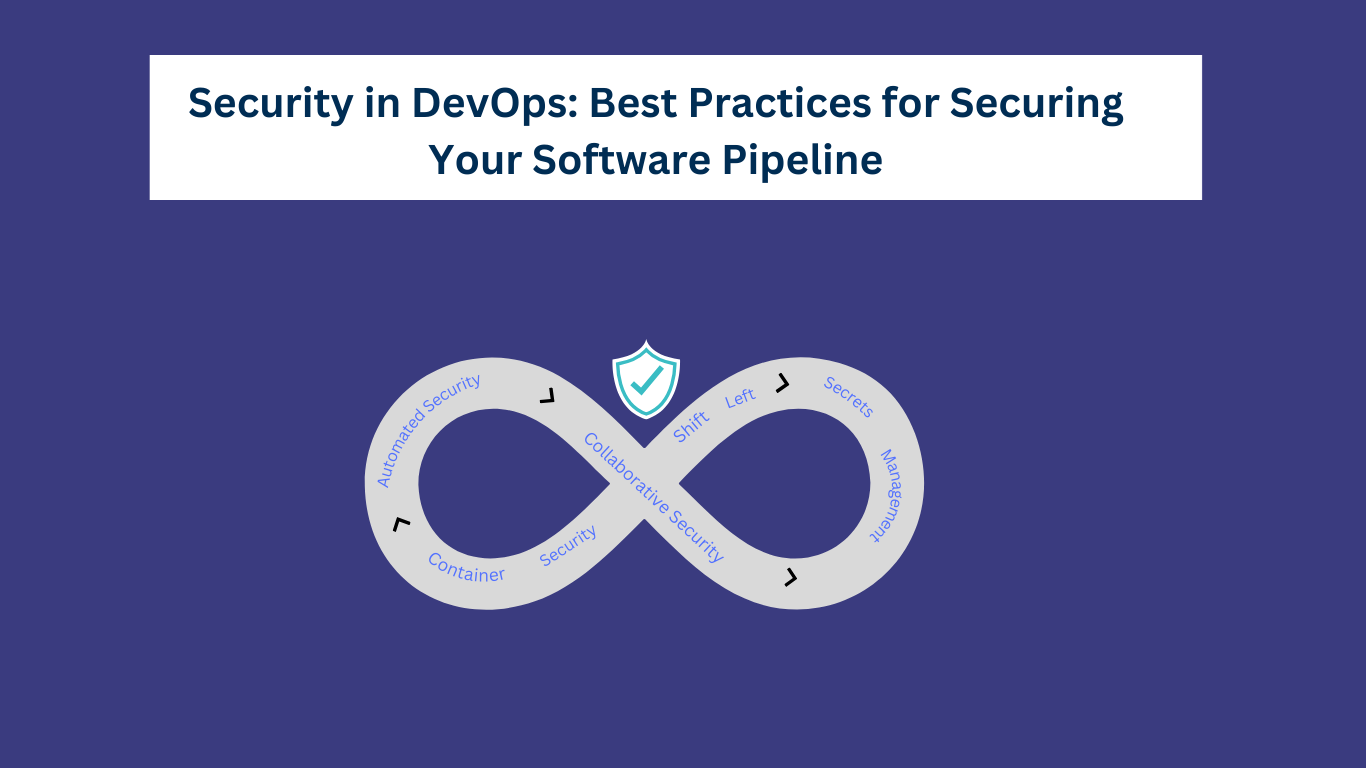In today’s fast-paced digital landscape, where software development cycles are becoming increasingly rapid, the importance of security cannot be overstated. As organizations embrace DevOps practices to accelerate their software delivery, it’s crucial to integrate robust security measures throughout the development pipeline. In this blog post, we’ll explore some best practices for securing your software pipeline within the DevOps framework. the DevOps pipeline is essential for safeguarding software against evolving threats and vulnerabilities. By adopting best practices such as shifting left, automating security testing, securing containers, managing secrets, ensuring compliance, and fostering a collaborative security culture, organizations can build a robust security posture while maintaining the agility and efficiency of DevOps practices.
By prioritizing security from the outset and embedding it into every stage of the software development lifecycle, organizations can mitigate risks, protect sensitive data, and build trust with their customers and stakeholders in an increasingly digital world.
- Shift Left Approach: One of the fundamental principles of DevOps is the “shift-left” approach, which emphasizes addressing security concerns early in the development process. By integrating security testing and analysis at the outset of the pipeline, developers can identify and mitigate vulnerabilities before they escalate, reducing the risk of security breaches down the line.
- Automated Security Testing: Automation is key to achieving speed and efficiency in DevOps, and the same applies to security testing. Implement automated security testing tools and scripts to continuously scan code repositories, dependencies, and configurations for known vulnerabilities. This proactive approach enables teams to detect and remediate security issues in real-time, without impeding the development workflow.
- Container Security: With the widespread adoption of containerization technologies like Docker and Kubernetes, ensuring container security is paramount. Implement measures such as image scanning, runtime security monitoring, and least-privilege access controls to safeguard containerized applications against potential threats. Additionally, regularly update container images and dependencies to patch known vulnerabilities.
- Secrets Management: Effectively managing and protecting sensitive information such as API keys, passwords, and encryption keys is critical for maintaining security in DevOps pipelines. Utilize secure vault solutions to centralize secrets management, enforce access controls, and rotate credentials regularly. Avoid hardcoding secrets into code repositories or configuration files, as these can be exposed inadvertently.
- Continuous Compliance: Compliance with industry regulations and standards (e.g., GDPR, HIPAA, PCI DSS) is a priority for many organizations. Implement automated compliance checks within the DevOps pipeline to ensure that software deployments adhere to relevant compliance requirements. By embedding compliance checks into the CI/CD process, teams can minimize compliance-related risks and streamline audit processes.
- Collaborative Security Culture: Security is everyone’s responsibility, not just the concern of dedicated security teams. Foster a collaborative security culture within your organization by providing security awareness training for developers, encouraging open communication about security concerns, and integrating security considerations into the development workflow. By empowering all team members to prioritize security, you can strengthen the overall resilience of your software pipeline.
How Xovient Can Help
Xovient specializes in providing comprehensive DevOps solutions tailored to your specific needs. With expertise in security, automation, and cloud technologies, Xovient can help secure your software pipeline by:
- Implementing automated security testing tools and practices to identify and remediate vulnerabilities in your codebase.
- Establishing robust monitoring and compliance mechanisms to detect and respond to security incidents in real-time.
- Providing guidance on best practices for securing infrastructure as code (IaC) templates and containerized environments.
- Offering training and support to educate your teams on DevOps security best practices and foster a culture of collaboration and accountability.
In conclusion, security is a critical aspect of DevOps, and implementing best practices throughout your software pipeline is essential to safeguarding your organization’s assets and reputation. With Xovient’s expertise and support, you can enhance the security posture of your DevOps environment and mitigate the risk of security breaches and compliance violations.

